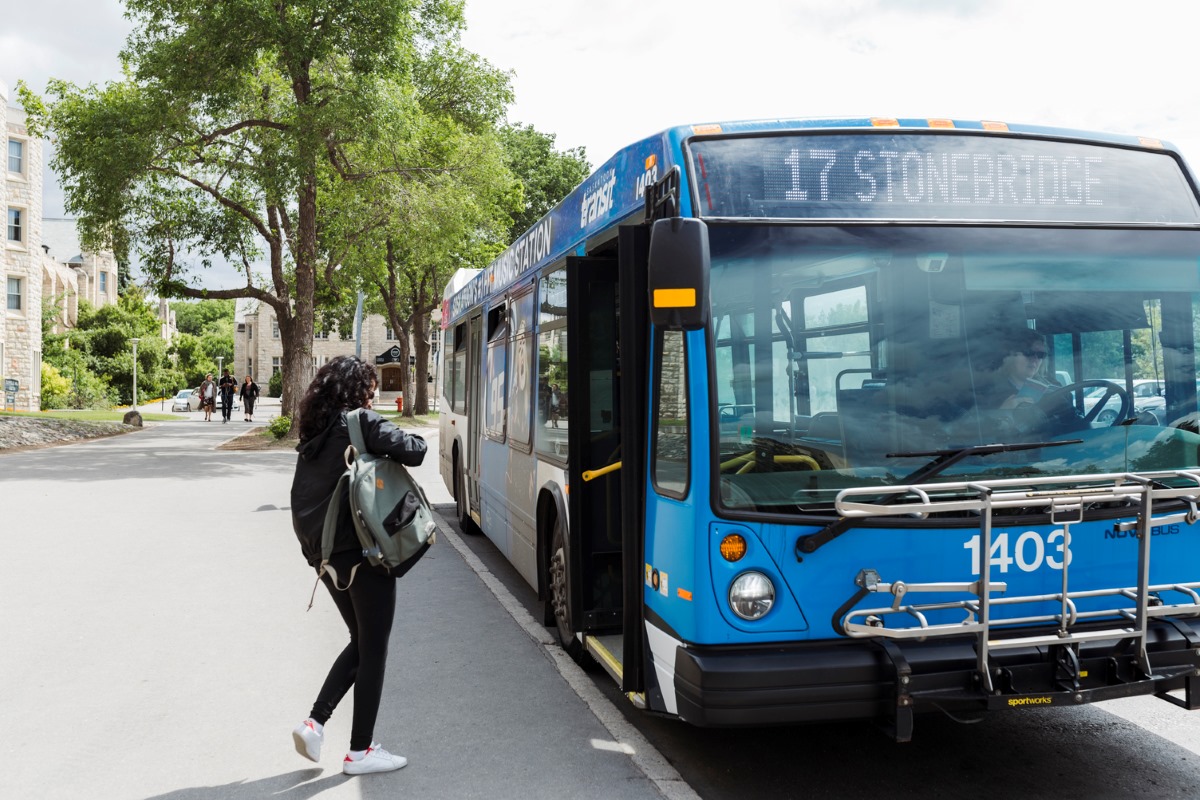
USask, City of Saskatoon explore merits of sustainable transportation strategies
SASKATOON — A joint project co-led by University of Saskatchewan (USask) researchers and City of Saskatoon officials will use data-driven assessment tools to create “healthy, sustainable transportation” strategies in Saskatoon.
Experts with the University of Saskatchewan and the City of Saskatoon are investigating benefits of sustainable transportation with support and funding from the Research Junction program.
Dr. Daniel Fuller (PhD), an associate professor in Community Health and Epidemiology with the College of Medicine, and his team are working with Chris Schulz, the manager of the City of Saskatoon’s Planning Project Services, on this research. Their work is aimed at developing evidence-informed methods of assessing sustainable transportation options to improve health and address climate change in an economically beneficial manner.
The co-operative project is part of the Research Junction initiative between USask and the City of Saskatoon to address contemporary urban issues for the betterment of Saskatoon’s residents.
Fuller said concepts of transportation – such as using private versus public modes of transport, or how much one walks or bikes – play a much deeper role in an individual’s health than most people understand.
“Let’s say you walk 10 minutes to your bus stop and then you walk 10 minutes to get to work, you’ve done 20 minutes of walking. There’s a very significant health benefit to that,” Fuller said.
“Physical activity is associated with helping all kinds of diseases, from heart disease to diabetes to depression, and those diseases are exceptionally expensive to the health-care system … So as soon as you can reduce the burden of those diseases, you have major health-care savings.”
By using a series of pre-existing tools such as the Health Economic Assessment Tool (HEAT), Fuller said they can create modeling that will predict the health, economic, and climate outcomes based on the investment put into a project.
Fuller and Schulz are using these tools to assess the development of the Bus Rapid Transit (BRT) system and the redesign of some of Saskatoon’s major public transit corridors.
“How can we try to tell a big picture kind of story about why health is important, transit is important, climate is important, and support the city doing this work and support the evidence base for ‘how much impact does this actually have?’” Fuller said.
Schulz said this kind of research can have direct, actionable results for the city to consider when implementing infrastructure projects — particularly when exploring ideas of sustainability.
“What we’re envisioning getting out of this is information that’s hard for us to pinpoint when it comes to benefits and costs … that goes beyond the dollars and cents,” he said. “We get data that we can use to help sell projects that make our city better.”
Schulz said joint projects like this are “all upside” from the city’s perspective. While Fuller and his team are conducting the research, Schulz said the city is able to provide context and data for that research – giving researchers the benefit of using the most up-to-date information possible for building their models.
Cities that are better for their citizens tend to be more complicated, Schulz said. Understanding how parts of public infrastructure interact — and being able to put data to ideas like “livability” — can inform new projects in the future.
"That’s what’s kind of exciting for me about this. Health, I think, is a great proxy for a place being livable. It ties into a place you want to be in,” Schulz said. “We don’t have a way to quantify a lot of things we’re trying to achieve when it comes to livable environments, and this is taking steps in that direction for us.”
This project is one of three recently awarded funding by the Research Junction initiative. Research Junction is a collaboration between the City of Saskatoon and USask’s Research Acceleration and Strategic Initiatives “to support the development of joint research projects that address contemporary urban issues for the benefit of Saskatoon residents.”
-30-
For media inquiries, contact:
Daniel Hallen
USask Media Relations
daniel.hallen@usask.ca
306-966-6922
City of Saskatoon Media Relations
mediarelations@saskatoon.ca

